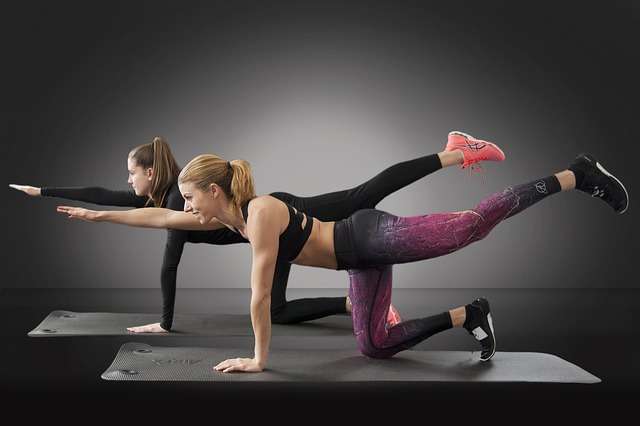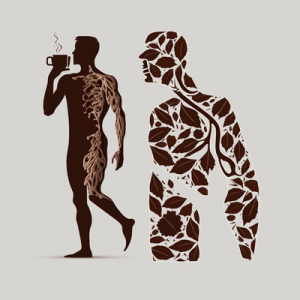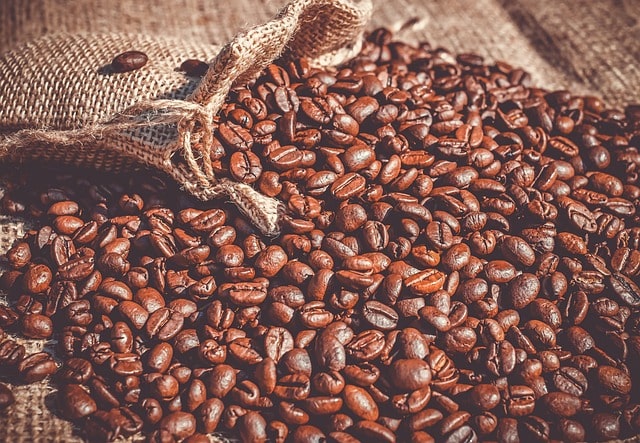Is It Bad to Drink Coffee Before Working Out?
Is it a boon or a bane to indulge in a cup of coffee before hitting the gym? This has been a hot topic of debate among fitness enthusiasts and coffee aficionados alike. But let’s clear the air once and for all. We at Top Cafe Blog are here to dispel the myths and provide you with accurate information grounded in research and expert opinion.
The notion of drinking coffee before working out has gained considerable attention, especially since caffeine’s role in enhancing athletic performance is not entirely unknown. But, like every coin has two sides, drinking coffee before working out also has its pros and cons.

Let’s Talk About Coffee
Coffee is a beloved beverage enjoyed worldwide for its rich taste and stimulating properties. A detailed exploration of how coffee is made reveals the meticulous process of transforming coffee beans into the final aromatic brew we adore.
However, coffee isn’t merely about taste and wakefulness. It’s a wellspring of various health benefits. Studies have shown that coffee may improve brain function, help with weight loss, and even protect against certain chronic diseases. To delve into this topic further, visit our page on the health benefits of coffee.
The Connection Between Coffee and Workout
But what happens when the world of fitness intersects with the universe of coffee? To comprehend this relationship, let’s first understand the impacts of coffee on the brain. Coffee, or rather the caffeine in it, works by blocking the inhibitory neurotransmitter adenosine. This leads to an increase in other neurotransmitters like norepinephrine and dopamine, leading to enhanced firing of neurons. In simpler words, coffee boosts your brain’s activity. For more in-depth insights on this, you can read our post about coffee and your brain.
Now, this increased brain activity can be leveraged during workouts. Coffee consumption before exercise can help increase focus, reduce perceived exertion, and delay fatigue. This means you can potentially exercise longer and harder.
“Coffee jump-starts the mind as much as the body. The right amount of coffee before a workout could significantly enhance your performance.”
But as hinted earlier, it’s not all rosy. Drinking coffee before a workout can have its downsides too. Some people may experience jitteriness, upset stomach, or a rapid heartbeat. These are the same side effects you might experience with coffee in general, but they could potentially affect your workout performance.

Pros and Cons of Pre-Workout Coffee Consumption
With coffee’s stimulating effects, it’s clear how it could fuel a workout. However, the pros and cons of drinking coffee before a workout aren’t as straightforward as you might think. Some people find the energizing effects of coffee beneficial, allowing them to work out longer and with more intensity. Conversely, others might find themselves dealing with discomfort due to coffee’s diuretic and digestive effects.
Additionally, it’s worth considering the calorie count if you’re watching your intake. While black coffee is low in calories, additives like cream and sugar can quickly turn it into a high-calorie beverage. You can learn more about the caloric content of your favourite beverage on our page, how many calories in coffee.
Alternatives to Traditional Coffee
If you find that traditional coffee doesn’t sit well with your workout routine, it doesn’t mean you need to part ways with your favourite drink. There are numerous alternatives and modifications to explore.
For instance, decaf coffee offers the same great taste without the stimulating effects of caffeine, making it a viable option for those who find themselves overly jittery. To understand better, take a look at our detailed analysis of the benefits of drinking decaf coffee.
For those in fasting periods or trying to manage their weight, espresso could be a great alternative. This strong brew has fewer calories compared to a regular coffee cup and can be consumed during fasting without breaking it, as discussed in our espresso while fasting and does espresso break a fast articles.

The Art of Coffee Making
There’s also a whole world of brewing methods to explore that can affect the strength and taste of your coffee. The difference between AeroPress and French Press, for instance, is not just in their mechanics but also in the resulting flavour profile. Playing around with these brewing methods might just help you find the perfect pre-workout coffee blend.
“The perfect pre-workout coffee blend isn’t a one-size-fits-all. It’s all about exploring and finding what suits your taste and fitness goals the best.”
But what if you are trying to cut calories or lose weight? Is it possible to still enjoy your favourite beverage without worrying about the extra pounds? Absolutely! Check out our guide on how to make black coffee for weight loss and discover how to enjoy your coffee guilt-free.
The Coffee-Nap Phenomenon
Another intriguing concept in the coffee and wellness world is the “coffee nap.” This practice involves drinking coffee before a short nap to wake up feeling more alert and refreshed. While it might seem contradictory, our piece on does coffee nap work explains the science behind it. Could this be another trick up coffee’s sleeve to boost your workout? You’ll have to read to find out!

The Verdict: To Coffee or Not to Coffee?
So, should you be reaching for your cherished cup of joe before engaging in your workout routine? The resolution to this question isn’t as clear-cut as a simple affirmation or negation. This is a nuanced topic that demands more than just a cursory glance. The world of coffee is vast and complex, much like the intricacies of our bodies and their responses to exercise.
Coffee, brimming with stimulating caffeine, can undoubtedly provide a tangible boost in your performance. It has the potential to enhance your focus, reduce perceived exertion, and delay fatigue – all benefits that can contribute towards a more productive workout session. However, it’s important to not lose sight of the potential drawbacks that may accompany these advantages.

Caffeine can trigger side effects such as jitteriness, digestive discomfort, and rapid heartbeat in some individuals. If you’re susceptible to these effects, they could potentially overshadow any performance-enhancing benefits and compromise the quality of your workout. Therefore, it’s crucial to consider both these aspects – the pros and the cons – when deciding whether to make coffee a part of your pre-workout regime.
Remember, coffee does not adhere to a one-size-fits-all principle. The way it affects one individual can greatly differ from its impact on another. Each person’s genetic makeup, tolerance to caffeine, general health, and even their psychological perception of coffee can influence their response to it. As such, your unique relationship with coffee will play a key role in determining its suitability as a pre-workout beverage.
Ultimately, the answer lies in understanding your body’s unique response to coffee. Observation and introspection are your best tools here. Listen to your body and watch for signs that indicate how well you tolerate coffee, especially in a pre-workout context. The key lies in knowing yourself, respecting your body’s signals, and making an informed decision that aligns with your health and fitness goals.
Understanding Your Coffee Consumption
Your relationship with coffee is unique, just like your white coffee mugs in your kitchen cabinet, each with its distinctive charm. If you’re a fan of coffee mugs like we are, you would enjoy our collection of white coffee mugs.
Just like choosing the right coffee mug, figuring out if pre-workout coffee works for you may take some trial and error. Start by noting your body’s response to coffee. If you experience jitters, discomfort, or a rapid heartbeat after drinking coffee, it might not be the best pre-workout drink for you.
Listen to Your Body
Remember, when it comes to fueling your workouts, the most important thing is to listen to your body. Just as you tailor your workout routine to suit your fitness goals, your pre-workout nutrition should also be customized to your needs.
What works best for someone else may not be the best for you. It’s important to gauge your body’s reaction to coffee, and if it’s unfavorable, you might want to consider other pre-workout nutrition options.

Other Factors to Consider
When deciding if coffee should be your go-to pre-workout drink, it’s crucial to consider your overall diet, the time of your workout, and the type of physical activity you’ll be doing.
For example, if you’re planning to work out first thing in the morning, coffee could give you the necessary pick-me-up to get moving. On the other hand, if your workouts are later in the day, a caffeinated beverage could interfere with your sleep patterns.
“Deciding whether to drink coffee before a workout isn’t only about physical performance. It’s also about understanding your personal goals, health conditions, and lifestyle.”
Remember, the goal is to enhance your workout, not compromise your health or comfort. So, be open to adjusting and finding what works best for you.
Final Thoughts
In the end, the decision to drink coffee before a workout depends largely on personal preference and tolerance. For some, coffee can be a wonderful pre-workout boost. For others, it might cause discomfort or disrupt their routine. It’s all about balance, understanding, and adapting to your body’s needs.
Whether you decide to enjoy your coffee before hitting the gym or prefer to savor it in the comfort of your post-workout glow, remember that each cup is an opportunity to indulge in one of life’s simple pleasures.
In the end, there’s no right or wrong answer—just the joy of discovery as you find the best way to incorporate coffee into your life and workouts.







